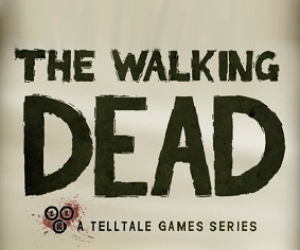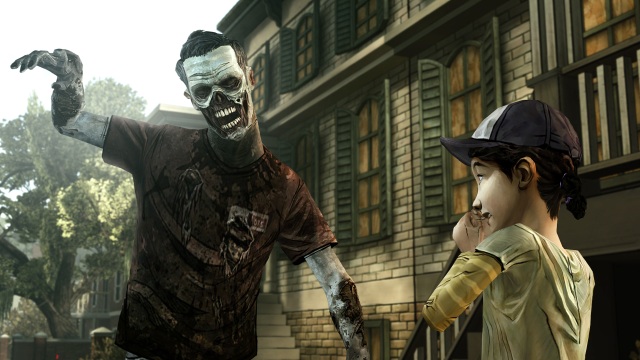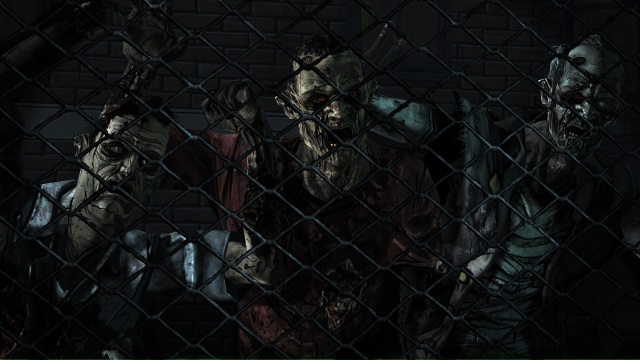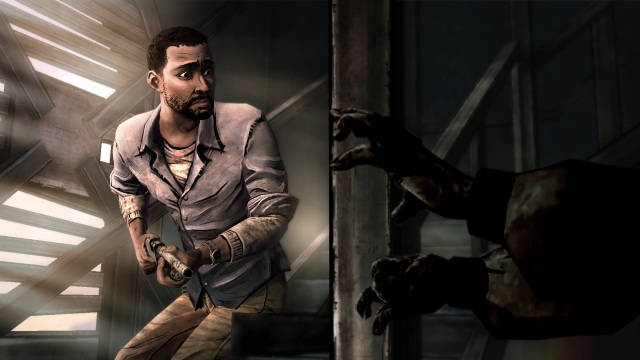The Walking Dead: Episode Four – Around Every Corner Review
 Game: The Walking Dead: Episode Four – Around Every Corner
Game: The Walking Dead: Episode Four – Around Every Corner
Developer: Telltale Games
Publisher: Telltale Games
Available On: Xbox LIVE Arcade, PlayStation Network, PC and Mac
Reviewed On: Xbox 360
We are nearing the end of the road for our protagonist Lee Everett and his rag tag group of survivors in The Walking Dead: The Game. In episode four – entitled “Around Every Corner” – many of the storylines and decisions that have been building up over the previous instalments of the series begin to come to a head in this episode, and there are some genuine shocks in store for fans this time around.
The group have finally made it to Savannah Georgia, where they are hoping they can find a boat to escape from the Zombie Hordes, and where Clementine – the little girl you have taken under your wing after rescuing her early in episode one – thinks she will find her missing parents. But as usual, and as is the theme in Zombie stories, nothing goes quite how it was planned once they begin to explore the city. We meet new survivors, less friendly ones and a whole host of the walking dead.
The plot lines that have been building up slowly from day one really begin to come together, with new revelations threatening to tear the group apart and really leading to some action-packed set pieces, and of course, as you have had to throughout the whole series, there will be some massive decisions that you will have to make. There are also a few successful horror film moments, for instance a traditional sudden shock scare, and plenty of suspense where you feel backed into a corner.

The lives of many of your fellow survivors will very much depend on some of your choices and how well you react to the situations in this fourth episode. The emotions that come out through the episode are perhaps even more intense than before; there are some really difficult decisions that need to be made and sacrifices that the group might have to make. And as always, the desire to protect Clementine is the heart behind all the emotions, providing such a strong centre for the story, and providing one of the greatest inter-character relationships ever seen in a video game. When Lee says he would kill someone if Clem was hurt; you completely understand, and would do the same. That is how much the game makes you care.
This is a triumph for interactive storytelling and a clear sign that video games can be as engaging (if not more so), both mentally and emotionally as traditional film-making. Just like a successful television series, the characters have been developed and nurtured slowly so that their strengths and foibles are slowly revealed and the story web is carefully woven. This kind of slow build really pays off once you get towards the end of this episode, and things are set up for a truly dramatic conclusion next time around, but it still keeps threading surprises your way, so you just can’t guess what might happen next.
Thankfully, the slowdown issues that have dogged previous episodes – and past Telltale Games titles in general – don’t seem to raise their ugly head so much for episode four. There are some really intense action scenes, with more first-person shooting sections and chase scenes, but the animation doesn’t suffer like it has before. Things keep up at a strong pace, and the glitches in loading seem a much lighter issue here. This is much appreciated, but it is somewhat of a shame that it took three previous episodes before they could address this issue. Again there are a few minor graphical errors as we have seen before (most notably an issue with the shading on Kenny’s character model) but the flickering textures that afflicted episode three are nowhere to be seen. It is good to see that these issues are being addressed from episode to episode, rather than just leaving the game in the state it was when they started.

There are quite a few more shooting sections in Around Every Corner, and perhaps more than ever before your reactions and reflexes will be put to the test. In one sequence in particular, you are being chased, and there are obstructions in the way of your shots, and panic does begin to set in, as the Zombie masses get ever closer. You will need to keep your wits about you and be ready search the environment for the solution to your predicament, sometimes with only seconds to spare. But the good thing is that although the series has always used quick time events to an extent, even when tension runs high and the pace picks up the game doesn’t resort to using QTEs all of the time. These only occur on a few occasions, and most of the time you still have full control over your character to escape a situation, rather than just mindlessly having to stab at the corresponding buttons to what appears on-screen.
Whereas episode three actually introduced a few more traditional adventure gaming puzzles, episode four is much more about people management and looking after your team. Most of your choices and things you will need to ponder are conversation based this time around, making this instalment far more emotion based and the choices you make seem to have much more direct and dramatic results than they may have done in the past. Indeed, you see some very immediate effects from some of the things you say and there are possibly more occasions than ever before in this episode where you can (and will) die if you can’t quickly make the right choices.

VERDICT: It is that kind of tension that has made the series so involving so far. You really care about what happens to the main characters and you want to protect Clementine, so when something goes wrong or you make a poor choice, you do feel bad and regret the decision. Of course, of all the choices that you will make in the game, some are far more trivial than others, and even some of the seemingly important ones may not alter the outcome of the story greatly, but there are some really difficult ones that can change the playing field radically and really test your morals at the same time.
The fact that you are given a series of percentages at the end of each episode showing how many people around the world made the same choices that you did is a nice touch, and helps give you an idea of how your moral compass differs from other gamers around the world. If you make a decision and then see that you were only in the five per cent that made that choice will that make you feel more guilty, or just reaffirm that you made a tough choice that no-one else could? And by providing a game experience that can make you feel like you played something in a way that no-one else did, Telltale Games have almost made a completely new genre of gaming. It has been said before, but this is what the evolution of gaming should be.






